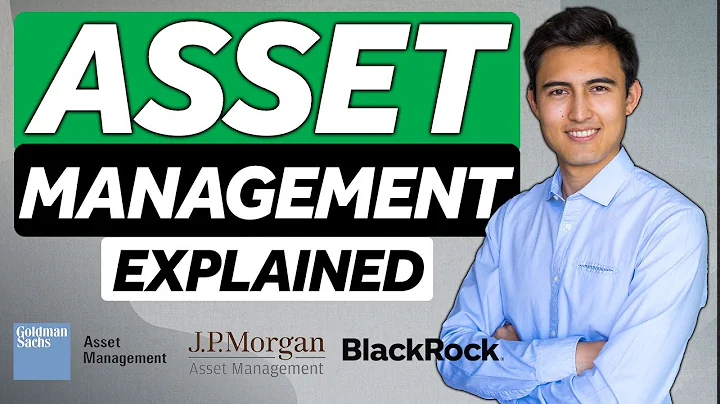Do asset managers invest in real estate?
Asset managers can also be involved with real estate. These professionals operate with the same principles that an asset manager does in the financial market.
Thus, an asset manager's role is to determine what investments to make or avoid and to realize the client's financial goals within the client's risk tolerance limits. The investments may include stocks, bonds, real estate, commodities, alternative investments, and mutual funds, among the better-known choices.
Asset management is more of a process of overseeing property performance & planning the timing of capital upgrades, with the goal of enhancing value and maximizing return to the owner.
What is the difference between asset and property management? Asset management involves increasing the total worth of an individual or company over time by buying, selling, and improving investments. In contrast, property management involves handling the daily operations of a property, including maintenance.
Asset Manager Job Responsibilities:
Manages client assets according to investment preferences and goals. Meets with clients to assess asset status, needs, risks, goals and progress. Prepares financial statements, business activity reports and forecasts. Develops, organizes and maintains client portfolios.
Real estate asset management entails monitoring performance and making forward-looking decisions (such as value-add improvements, buy, sell, hold, refinance, etc.) on behalf of investors to increase property values and pursue the best risk-adjusted returns.
Historically, the three main asset classes have been equities (stocks), fixed income (bonds), and cash equivalent or money market instruments. Currently, most investment professionals include real estate, commodities, futures, other financial derivatives, and even cryptocurrencies in the asset class mix.
Thus the creation of a real estate investment trust market is premised on the existence of professionals who can manage real estate assets, and entails the emergence of a full-fledged real estate asset man- agement business.
Rather than investing their own money, asset managers invest on behalf of beneficiaries like pension holders, foundations, or individuals with savings.
The main benefit of working with an asset manager is that they'll manage your investment portfolio so you won't have to. Imagine having to build a diversified portfolio of hundreds of different stocks and manage it on your own. Instead, you're able to buy mutual funds through asset managers that do it for you.
How do asset managers make money?
The standard fee for asset managers is 1% of whatever is being invested. Some asset management funds also make money through a performance fee, similar to a bonus. Performance fees are setup so asset managers are rewarded with a bonus payout when growing the fund to a certain target threshold.
Common names for investment advisers include asset managers, investment counselors, investment managers, portfolio managers and wealth managers.

Overseeing and updating portfolios on a day-to-day basis. Proposing investments that align with clients' financial goals. Collaborating with other finance employees including analysts and tax planners to reduce the risk for clients' portfolios. Updating clients about the performance of their portfolio.
BlackRock, Inc. is an American multinational investment company. It is the world's largest asset manager, with $10 trillion in assets under management as of December 31, 2023. Headquartered in New York City, BlackRock has 78 offices in 38 countries, and clients in 100 countries.
Asset manager refers to the institutions that manage money, securities and other forms of the asset on behalf of an asset owner. Their goal is to grow the value of the assets under their management.
What is an Asset Management Fee? This is generally a recurring fee that is a fixed percentage of revenues earned by a fund or project. This fee goes to cover the cost of the ongoing work of portfolio management within a particular investment. Asset management fees generally range from 0.5% to 3% of total revenues.
Role of AMC in Mutual Fund
The primary role of a fund house in mutual fund investment is to decide the time and manner of investment on behalf of their clients. An AMC understands the financial goals and risk appetite of an investor and manages their assets accordingly to meet the goals.
We take a careful and rigorous approach to capital structuring, asset selection, due diligence, and portfolio construction. We act as one global team investing across real estate credit and equity, which enables a true relative value approach.
They can mesh with your preferences and parameters. The constituents of the 5P model are: 1) Plan, 2) Process, 3) People, 4) Possessions, and 5) Profits.
As you'll see from the list above, real estate is an asset class that is often categorized under the larger umbrella known as alternative assets. Alternative assets are assets that fall outside more traditional categories such as stocks and bonds.
What is another name for asset management?
Asset management and facility management (FM) are terms sometimes used interchangeably but refer to distinct processes within a facilities context.
What is a REIT? A Real Estate Investment Trust (REIT) is a security that trades like a stock on the major exchanges and owns—and in most cases operates—income-producing real estate or related assets. Many REITs are registered with the SEC and are publicly traded on a stock exchange.
About BlackRock in the U.S. We're an asset manager and one of the world's leading providers of investment, advisory, and risk management solutions. We're a fiduciary to our clients, and by investing on their behalf, we help millions of hardworking Americans experience financial well-being.
Real Estate Investment Trusts can be an excellent career path for many willing to work in finance and real estate. With the right willingness and determination, employees can develop the finance and interpersonal skills needed to succeed in the industry.
They pool money from individual and institutional investors and invest it in a variety of securities, such as stocks, bonds, and mutual funds.